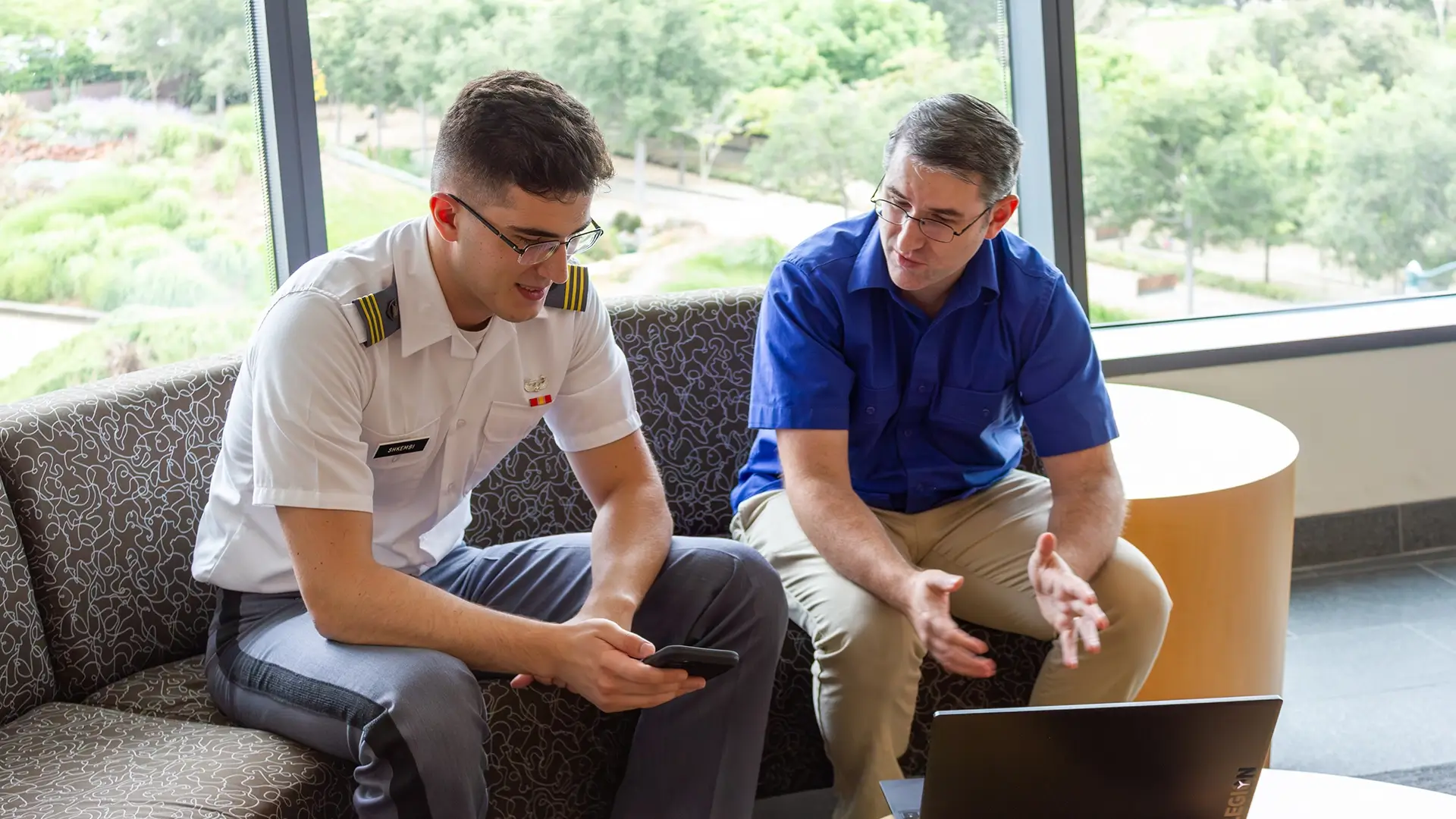By Dr. Benjamin Nye, Director of Learning Sciences, USC Institute for Creative Technologies
As Director of Learning Sciences at ICT, our group studies how Artificial Intelligence can help people learn better and accomplish their goals. To understand our mission in the Learning Science group, there are three main questions: Why learning? Why AI? and Why ICT?
Why Learning?
Growing up, I read and watched nearly everything, and especially stories from Science Fiction and Fantasy. These stories changed how I understood the nature of power. As a little kid, I was a huge fan of Star Wars: the galaxy-wide battles where good and evil struggle for who will win in the end. I still have a Millennium Falcon waiting in my closet. However, by the fourth grade I read A Wizard of Earthsea by Ursula Le Guin. Earthsea emphasized the importance of balance: that good wins by each person learning to use power carefully, not by who has the most power. Kindness is the central pillar for this power balance.
Education is the second pillar. Education gives you skills and opportunities that open up better choices. A good education helps you understand yourself and the world around you enough to make good choices. Specialized training grows a student’s power to help other people with things those people couldn’t do easily, which is the foundation of trade and economies. When you “Teach a man to fish” in real life, he doesn’t just eat fish but now he sells fish, he teaches others to fish, and more.
Why AI?
This is the simple one. If you’re short on fishing experts, it’s also hard to find fishing teachers. AI can break through bottlenecks in sharing knowledge, and my vision for AI is a tool to empower teachers and experts to support every student’s learning at unprecedented levels.
Why ICT?
As I built my skills in AI for education, I conducted a major review of over one thousand AI learning system papers. What I found was that there were only about a dozen major hubs in the US for intelligent tutoring research at the time, and USC ICT was among the most prolific, publishing research on AI tutoring from domains ranging from computer science to leadership to cross-cultural negotiation skills.
Moreover, ICT was known for a commitment to transitioning AI tutors out of the lab: each of those topics produced systems that reached tens of thousands of learners: such as the NSF “Ada and Grace” at my hometown Boston’s Museum of Science and INOTS leadership scenarios at Navy officer training schools.
What’s next?
We’re really excited in the Learning Sciences group this year, because we’re starting to release our new generation of tools. Multiple groups are already using MentorPal, a virtual STEM career fair where STEM professionals can self-record their own interactive virtual agent mentor using just their browser and a webcam. Additional tools are expanding pilot study sites as we aim for a 2024 public release, like a version of our Personal Assistant for Life-Long Learning that uses AI to teach AI. Just behind those will be tools designed to use the best new generative AI capabilities, such as teaching critical thinking during writing (ABE: AI for Brainstorming and Editing) and on tools to help teachers co-create AI learning activities. Then, in a year or two, we’ll be researching tools designed to stretch the limits of the next generation of AI and ML models.
Finally, the best part of this group is working with our amazing team of researchers, software developers, and student researchers every year. I am always impressed to see their research and how far they go, ranging from big tech to small startups, and even some newly minted professors.
To all our incoming student researchers and professional teachers visiting with us over the summer, welcome to the team! The skills you build and the research you contribute are equal parts of our mission.
So while some places try to “Move fast, break things” our aim is to “Move smart, grow things.”
//
BIO:
Dr. Benjamin D. Nye is the Director of Learning Sciences at USC-ICT. Ben’s major research interest is to identify best-practices in advanced learning technology, particularly for frontiers such as distributed learning technologies (e.g., cloud-based, device-agnostic) and socially-situated learning (e.g., face-to-face mobile use). His research interests include modular intelligent tutoring system (ITS) designs, modeling social learning and memes, cognitive agents, and educational tools for the developing world and low-resource/low-income contexts. He received his Ph.D. in Systems Engineering from the University of Pennsylvania in 2011.
In his work as a Research Professor at the University of Memphis, Ben led work on the Shareable Knowledge Objects (SKO) framework integrating ITS services such as AutoTutor for the ONR ITS Grand Challenge, helped data mine effort a corpus of 250k human-to-human online tutoring dialogs (part of the ADL PAL initiative), collaborated on ONR’s PAL3 tutoring architecture for supporting life-long learning, and is an advisor and book editor for the ARL Generalized Intelligent Framework for Tutoring (GIFT) advisory panel.
Ben’s research tries to remove barriers to development and adoption of ITS so that they can reach larger numbers of learners, which has traditionally been a major roadblock for these highly-effective interventions. He also believes that the future of learning science depends on large, sustainable platforms with many users, where efficient sampling techniques can be used to drive new designs for experiments. Finally, he is interested in making the process of science more efficient, such as by advanced metadata and analysis for scholarly publications.
